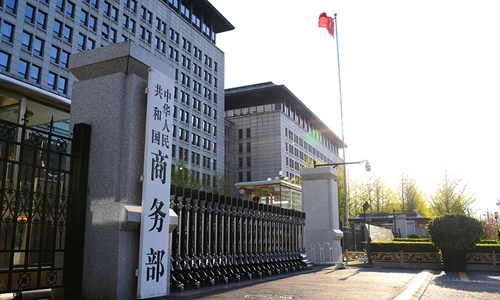
The Ministry of Commerce (Photo: VCG)
China's new rules on foreign investment security reviews, which were enacted in January, concentrate security reviews on two types of foreign investment, including military, and other areas concerning national defense and security, as well as major agricultural, energy and resources areas that are critical to national security, according to China's Ministry of Commerce (MOFCOM).
Also, investment in areas near military installations and facilities will be subject to security review, MOFCOM spokesperson Gao Feng said at a regular press briefing in Beijing on Thursday.
"Carrying out security reviews of foreign investment has been a common international practice, and major world economies have already set up or are improving such security review mechanisms," Gao said.
He noted that the new rule is in line with the requirement of the Foreign Investment Law, and it provides a necessary guarantee on the stable and sound development of the Chinese economy.
In the long run, it is also conducive for foreign companies' business in China, and it won't put an unnecessary burden on normal foreign investors and firms.
China's foreign investment security reviews, which were announced in December and put into effect in January, have been deemed as an important measure in further opening-up amid a boiling tech war between the world's two largest economies.
Gao also added that China this year will continue pushing forward revising the negative list for foreign investment and reducing entry barriers.
It will also expand the level of protection for foreign companies' legal interests and implement working measures on complaints by foreign-invested companies, while continuing to improve the transparency and convenience of the investment environment.
In the first two months, China's foreign investment soared 31.5 percent year-on-year to 176.8 billion yuan ($27.22 billion), MOFCOM data showed.


